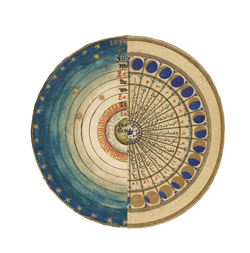While many treatises by Aristotle were translated from Greek into Latin in the 12th century, his On the Heavens forms a notable exception. Its content was only indirectly and partly known in the West through an Arabic-Latin paraphrase until two different translations from Greek appeared in the middle of the 13th century, one by Robert Grosseteste, the other by William of Moerbeke. Almost simultaneously, the same translators also produced translations of the late-antique commentary on the same text by Simplicius. It seems likely that the translated commentary was aimed at filling the need for an interpretational tool for the work that had previously been missing in the Latin world. Although the Latin translations of Simplicius's commentary were produced independently from each other, their transmission history became intimately intertwined from their earliest dissemination onward. While Moerbeke had translated all four books of Aristotle's treatise and of Simplicius's commentary, it appears that Grosseteste interrupted and ultimately ended his endeavour after the first chapter of book three. To make matters more intricate, only book two and the chapter from book three of Grosseteste's Latin survive in a single manuscript preserved in Oxford's Balliol Library, which remarkably also constitutes the best witness for Moerbeke's translation in the other parts of its text. Book one of Grosseteste's translation was probably erased from history, except for numerous short passages that were blended with Moerbeke's text as preserved in a Vatican manuscript. In my presentation, I intend to use this case as an example to illustrate that history is written by victors, and that historiography of science is inevitably determined by the selective survival of texts and their witnesses. For the Latin On the Heavens, it was all too readily assumed that Grosseteste's translation had perished because of a lack of interest outside his circle of Oxford students. Recent identifications of relevant manuscript material have shown that the commonly accepted view is in need of revision. I will present newly acquired information regarding the manuscript tradition which forms the basis for my project to produce critical editions of book two of Simplicius's commentary in the two medieval Greek-Latin versions.
- Poster

 PDF version
PDF version

